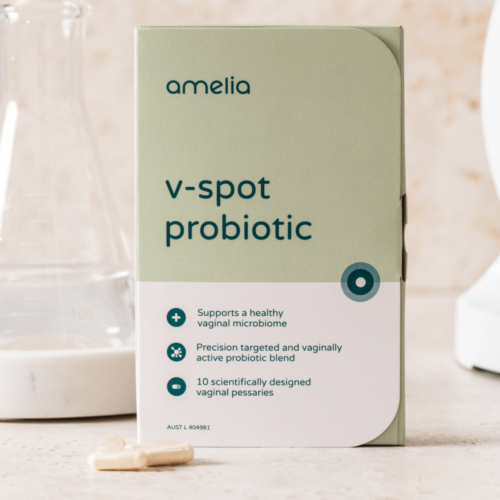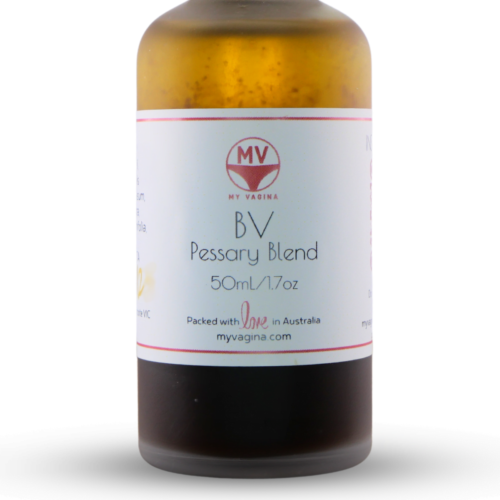Dear Aunt Vadge,
I have PCOS. I have thought for years my high cortisol and extreme stress as well as insulin resistance is aggravating in my case. It is probably why I am so terrorized by BV and yeast infections. I have the adrenal type of PCOS, which unfortunately there isn’t a lot of information on treating.
I have high DHEAS, DHEA and normal testosterone. I have high 5-a-reductase. I am untreated hypothyroid with high reverse T3. My 4 point cortisol saliva test showed my cortisol stayed elevated at all four points, but did go down some at each point. I believe the high cortisol is due to my constant crying (literally) over my body. I am extremely depressed about the hirsutism and lack of breast development, particularly.
I was diagnosed with and treated for H. pylori as a child. I was never re-checked after treatment. Since that time I have had severe GERDS and took antacids every day of my life for around 12 years until I finally went cold turkey about six years ago. I have had antibiotics several times a year since I was two for chronic ear infections and then as a teen chronic vaginal infections. I had many bouts of sinus infections and strep throat in between. I was never breast fed. My gut has been torn to hell by all of this damage, I just know it. I may not even have a good bug left!
I now have aquagenic urticaria and vibration urticaria and I personally believe it is my body falling apart and the cause of that being too much bad bacteria/inflammation in my gut and too much emotional stress/inflamed body.
I was vegan at the time for around two years. Big mistake. I am no longer vegan. I had several vitamin deficiencies at the time of my last testing including iron, D3, B12 and several other B vitamins. I have insomnia and fatigue, just as a note. Oh, and I am not obese, but I am overweight if that matters.
I know I need to manage stress. I am going to learn how to meditate and incorporate that.
I want to take vitamin D3, K2, magnesium, zinc, B-complex, fish oil as my vitamin base. I have tried a multi before, but didn’t get relief. I saw a naturopath online – she doesn’t see symptom relief with multi vitamins, but in singular, therapeutic dose vitamins.
Okay, for my gut, my insomnia, my stress, I just don’t know what to use. I have thought about curcumin. I have thought about L-theanine. I have thought about the lavender oil called Silexan. I think I need a digestive bitter. I have thought about taking a product that has a combination of marshmallow, slippery elm, aloe and DGL to soothe my GI tract.
I have been using Jarrow Fem-Dophilus and Nature’s Way Primadophilus Reuteri Powder for around two months and I have not noticed anything, but after reading Killing BV I see why. I do notice when I eat yogurt, my [BV] infection seems to get worse. I don’t know what that means except maybe sugar or dairy is an aggravation for me.
I have many ideas of what to take and what to do, but constantly wonder if it is a good idea.
I need help desperately.
Yours,
Stressed
______
Dear stressed,
It sounds like you have quite a lot going on so it’s no wonder you are needing some help and guidance.
Adrenal-type polycystic ovarian syndrome does indeed requires a slightly different approach. Here, as you have correctly identified, the main concern is to reduce stress and the body’s response to stress. While weight and insulin are still very important, stress is the driver of the androgen production here.
In women with adrenal PCOS, stress excessively stimulates the production of the adrenal androgens DHEA and DHEAs. Genetics play a large role in this but it is still very helpful to control sources of stress and manage one’s response to stressful situations. Meditation is great for this. I suggest setting yourself a 30 day challenge to mediate 5-10 minutes each day and form a habit of it. The Smiling mind smartphone app is great for this.
The adrenal glands also produce cortisol. Your tests have shown that your cortisol levels are increased and this is thought to be the tendency in women with PCOS generally. In women with PCOS, the brain tries to maintain this high level of cortisol by sending out higher levels of the adrenal-stimulating adrenocorticotropic hormone (ATCH). ATCH may be responsible for also stimulating DHEA and DHEAs. Therefore cortisol needs to be reduced to reduce DHEA and DHEAs. Meditation will help a lot with this, and there are some herbs that will too (coming up).
Having high 5-alpha reductase could mean that your testosterone is getting converted to a more potent form of testosterone called dihydrotestosterone. If this happens in hair follicles it causes hirsutism. There are some herbs and nutrients that inhibit 5-alpha reductase, which may help with hirsutism.
DHEAs can also lead to hirsutism so decreasing this could cause a reduction in your hair growth. However not all women can completely reverse hirsutism so it may be helpful to consider laser hair removal. It may be out of your budget but it is not as expensive as it used to be so if it is very important to your happiness and wellbeing start saving or put in a birthday present request with your friends and family.
It does sound like your good gut bacteria have taken a bashing over the years. Repeated use of antibiotics kills the good guys and allows infections like thrush and BV to take hold. This also causes problems with hormone detoxification and inflammation of the gut lining – as you have already surmised. An inflamed gut means an inflamed system and this is can cause insulin resistance by clogging up insulin receptors – not good for PCOS.
Your thyroid hormone, T3, gets converted in to reverse T3 (rT3), which is the inactive form of T3, when you are under high levels of stress. It is the body’s way of trying to slow down your metabolism and conserve energy. So as stress and cortisol reduce, your thyroid may begin to function better again, producing more T3 and less rT3. There are other ways to improve thyroid function naturally, such as taking certain nutrients, but this gets complicated and should be done under the guidance of a naturopath or functional medicine practitioner. I suggest focusing on this after you have addressed stress and your gut.
So for now, it seem like focusing on two main goals will be the most effective starting point – decreasing cortisol and stress, and healing your gut. The rest should follow. But bear in mind that you have had this for at least 5 years now so it may take some time to heal. Be patient and allow each treatment at least three months to start working. If you start to see positive change you are on the right track and should continue for another three months at least.
1. Lower cortisol and stress
- Use herbs that lower cortisol. Rhodiola (Rhodiola rosea) and withania (Withania somnifera) are a wonderful combination for this
- Meditate daily for 5-10 minutes, and use the techniques you learn to try to become more present and break the thought pattern around the negative effects that PCOS are having on you
- Seek help from a counsellor or psychologist to help deal with the impact of PCOS on your body image and life
- Do something that you enjoy every day for 30 minutes minimum – e.g. walking, drawing, funny movies, time with friends, time with pets, swimming, music or anything else that makes you feel good
- Try to get 8-9 hours of sleep per night as this will greatly improve your stress response.
- Use herbal preparations of lavender, chamomile, passionflower, and lemon balm, and possibly try melatonin and L-theanine, take half an hour before bed and meditate to settle your mind before bed
2. Heal your gut
Remove things that have a negative impact on gut bacteria:
- Drugs such as antibiotics, the oral contraceptive pill, antacids, NSAIDs
- Refined carbohydrates, alcohol, sugar and large amounts of saturated animal fat
- Eat lots of anti inflammatory foods (see The PCOS Solution)
- Dairy – for you it sounds like dairy could be causing inflammation (the history of chronic ear and sinus infections is a big sign for that).
- Following the dietary guidelines in The PCOS Solution is a great start for getting on track with the above dietary suggestions
Restore digestion
- Use bitters to stimulate digestion. If you can’t afford these, simply eat a handful of bitter rocket at the start of every meal, chewing well and tasting the bitterness. Roasted dandelion root tea between meals works well too.
- Chew your food thoroughly ensuring it forms a fine paste before swallowing. Focus on sensing flavours and textures as you chew. This greatly enhances the breakdown of your food.
Repair your gut lining
- Choose a quality supplement with a combination of glutamine, slippery elm, DGL licorice and marshmallow (or at least some of these)
- Saccharomyces boulardii, a strain of beneficial yeast, also helps heal the gut lining whilst being helpful for thrush
Restore your gut bacteria
- Lots of veggies of all colours of the rainbow provide everything good bacteria need. Aim for 5-7 half cups per day, mostly cooked and some raw
- Probiotic sauerkraut – 1 tsp with every meal
- A high strength probiotic with multiple strains (4-6 strains is good, and at least 10 billion CFU per capsule) twice daily
Look for quality supplements and follow the instructions on the label. This all may seem like a big undertaking and it is. Gut healing programs are hard and require time and commitment. They are best done under the guidance of a qualified naturopath.
It is possible to tackle this yourself though – just start with one thing at a time and once that is firmly a part of your routine move to the next. Realise that it will take some time to heal your gut – anywhere from three months to one year to see some real change.
The vitamins you have listed could be very helpful for you too but realise that until your gut is healed, you won’t be getting full absorption of these anyway. Gut healing is the priority. Vitamin D levels need to be assessed as you go along so that you can determine whether your are treating deficiency or simply maintaining levels – this will determine the dose.
Ask your doctor to test your blood Vitamin D every 3-6 months. Know that zinc should not be taken continuously. Have a break from it every 1-2 months so that you don’t throw out the balance of other minerals, such as iron and copper.
It sounds like you have already done a lot of research into your health and are being proactive about getting well. Understanding your health conditions is the key to empowering yourself and getting well. Keep up the good work and keep going. We are here to help if you get stuck along the way.
Warmest regards,
Aunt Vadge
Specially formulated probiotic for vaginal application to promote a healthy vaginal microbiome.
Unique, comprehensive BV, AV and 'mystery bad vag' treatment guide, one-of-a-kind system, with effective, innovative treatments.





